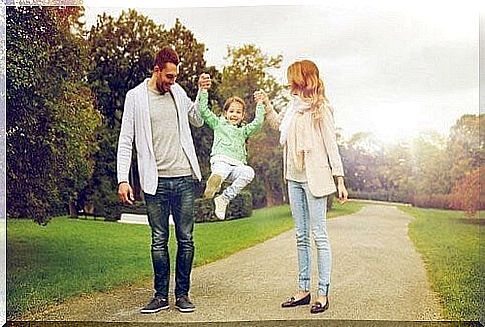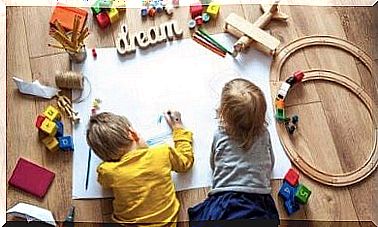Foster Family: What Is It And How Does It Work?

A foster family offers children and young people temporary care. These families undertake to protect the child and provide for his or her physical, emotional and psychological well-being until he or she can return to his or her biological family or adoptive family.
Foster families are temporary protective measures for minors in hopeless situations. They keep children in a family environment until their own family can take care of them again.
When parents can no longer take care of their children, it is the job of the authorities to take care of them. To meet their needs, they may end up in an orphanage. But over time, research has shown that children need to feel part of a family if they are to develop properly. This is one of the reasons why foster families were invented.
A foster family acts as a guardian for the child until the child’s family situation is resolved. A foster family does not mean that it will now become the child’s legal family. This is the primary difference between adoption and family care.

How does a foster family work?
A foster family must make the child a part of their lives and ensure the child’s personal development until the child can return to his or her biological family.
This association occurs when the biological parents have been taught how to care for their children and when they have shown that they have overcome the conflict or situation that resulted in the separation.
A foster family allows the child to maintain the connection to his or her biological family. This means that the child can continue to see his parents, while the foster family protects the child until the child can live with the parents again. The process does not make the foster parents the child’s new parents.
There are a lot of laws and regulations involved in the process of family care, which regulate all the rights and obligations of those involved. The legislation also guarantees respect for the child, its biological family and their cultural identities.
Family care has other characteristics compared to orphanages. The child benefits from individual attention as well as the development within family frameworks. This is a vital and enriching experience for all involved.
This coexistence will continue until the conditions that caused the separation are restored. However, it is not always possible for the child to return to his or her biological family. In some cases, the child has to move on to an adoptive family.
Why do some children come into foster care?
There are various conditions that give rise to the need for foster families. This could be, for example, financial problems, health problems or conflicts between parents. The final solution may therefore vary.
For example, some children only need to be cared for a few days a week if the biological parents’ work does not allow them to stay at home with the children during that time.
Guardians can also be established for short periods in response to a temporary need or an emergency. This occurs when the parents are unable to take care of their child for a certain period of time. This may, for example, be due to a hospitalization.
The most common type of family care is a long-term guardianship. This occurs in cases where it is not possible to predict when the child or infant may return to its biological parents.

A difficult choice
It is usually married couples who can best offer to take care of children. Couples with children the same age as the future foster child will be preferable. Thereafter, married couples who do not have children are preferred, and eventually single.
It is the social authorities that prepare, evaluate and support foster families. Their collaboration is important as this special experience must be carried out with the support and help of professionals.
It is wonderful to take care of a child with a difficult past, but it also represents many challenges. The child may not feel comfortable in a foster family, or he or she may behave strangely.
It is important to point out that most children fear losing their biological families. Since they obviously do not know their new foster family, they are often insecure about whether they can trust them. That is why it is important to be flexible.
Convenience of the system
The care system allows children of all ages to grow up in a family other than their own when they need it for a specific period of time. These families are always hospitable and supportive.
This choice offers short-term and long-term benefits. When a child does not receive the proper care in early childhood, it can have serious and summertime permanent consequences for the child’s development. Thanks to foster families, many children have a happier childhood and a better and brighter future.









